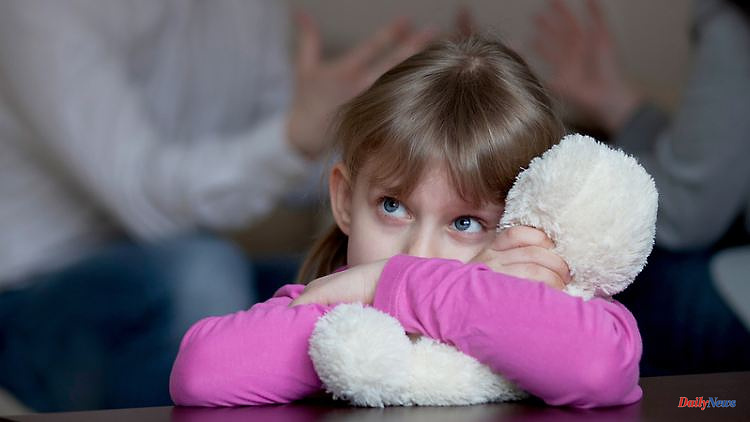Sometimes it's trifles, sometimes dogmatism or the dispute over the inheritance - and branches of the family are at loggerheads. Then demanding loyalty from your children is the wrong approach, says one family coach.
The royal family feud between Prince Harry and Meghan against his father Charles, Prince William and Kate is haunting the whole world. But hardly anyone wonders what that might do to the children George, Charlotte, Louis, Archie and Lilibet.
Everyone can have quarrels within the family. How should parents involved in a family dispute deal with the dispute in relation to their children? Family coach Kira Liebmann says: "No matter what it is, you shouldn't ask your children to take a stand." Otherwise, the children will be pushed into a responsibility that they could not bear at all.
And Liebmann therefore advises not to drag the children into a family war of roses. For example, by imposing contact bans on them. Suddenly not being able to talk to your uncle or cousin or not being able to see your cousin or aunt, even though you may have thought them totally cool and loved them, not only tears the children apart. "Although they don't have any problems with their relatives, they are now part of the problem," explains the founder of the Academy for Family Coaching in Maisach, Bavaria.
And they can develop fear of loss. Children under the age of 16 are not yet able to develop a sense of security from within, explains the expert, who also coaches parents in puberty survival training. "That's because the areas of the brain responsible for these processes aren't mature enough until the end of puberty. That's why they need parents who give them security from the outside."
Parents should therefore make it clear to their offspring: "This is not your problem. This is our dispute and you have nothing to do with it". At the same time, parents shouldn't pretend that everything is fine, because children have fine antennae and get it anyway.
If you then want to know everything exactly, you should summarize the topic as briefly and simply as possible and not get lost in the details. And: "The smaller the children, the less they need to know about the conflict," says Liebermann. Further questions could be ended with the sentence: "I understand that you are interested in that. Look, we adults have our adult things that we have to take care of ourselves. We'll clarify that among ourselves. But it's nice that you like so much want to know."
Hate speech should also be suppressed. "What good does it do for the child if you vent his anger with him?" asks the family coach. And if the child wants to mediate in the War of the Roses? "Then that's a strong sign of how desperate it is," says Liebmann. Nevertheless, one should make sure that a child does not take on the role of mediator. "Not getting drawn into the arguments is our job as adults."












